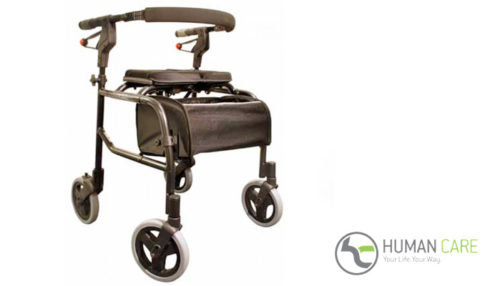A Guide To A Heart Healthy Diet: What Not To Eat

Are you looking to be healthier in the New Year? You’re not alone! People set New Year’s Resolutions for themselves every year so that they can change an aspect of their lives. Many people use their New Year’s Resolutions to make goals about their weight and overall health. Take advantage of this fresh start by improving your health in 2020! We recently published a blog about all the things you should eat to improve your heart health. This blog will show you what you should not eat in order to start 2020 with a heart healthy diet!
Foods to Avoid
If you’re looking to make 2020 a year of improving your heart health, there are certain foods that you should avoid consuming. Keep reading to learn more about these foods and why you should not be eating them.
Processed Food
One of the main types of foods that you should not eat if you’re looking to improve your heart health in 2020 is processed food. Processed foods are any type of food that has been altered, either mechanically or chemically. These foods are altered in order to change their original form or so that they can be preserved on a shelf for a longer period of time.
Sugar
Sugar is found naturally and also added to many foods. Sugar provides the consumer with energy but it doesn’t actually have any nutritional value of its own. Sugar is often added to processed foods to improve their flavour and shelf-life.
Types of Sugar
There are many different types of sugar. From white to brown, molasses to corn sweeteners, there are many sugary items to look out for in the food you’re purchasing. On the labels of your food, many companies won’t write the word sugar. Instead you have to look for other ingredients including:
- Glucose
- Fructose
- Dextrose
- Maltose
- Sucrose
It is also important to look at where in the ingredient list the sugar is. The closer to the top of the list, the more sugar there is in the product!
Natural Sugar
Many foods, including vegetables, fruits and milk, contain sugar naturally. These sugars are part of a healthy diet because they have other beneficial nutrients. The other sugars are commonly referred to as “free sugars”. This type of sugar has no nutritional value and is just added to several food and drink items to make them sweeter.
Why Avoid Sugar?
Avoiding sugar is extremely important to your health. Sugar has been linked to causing heart disease, stroke, obesity, diabetes, and many other health concerns. It is advised that the average person should only consume between 5%-10% of their average daily total calories in sugar. Consuming more than this can be hazardous to your health.
Salt
Another ingredient in our food that isn’t good for our heart health is salt. It has many different negative impacts on our health which can impact our heart.
Blood Pressure
Did you know that almost ⅓ of people are sensitive to the sodium in salt? This means that consuming too much salt can cause your blood pressure to rise which contributes to the chance of developing heart disease and stroke. Even if you don’t have high blood pressure, the amount of salt in your food can still influence you!
Salty Foods
There are many types of salty foods available for us to eat. Most of the salt that we consume comes from processed foods, such as:
- Fast Food
- Prepared Meals
- Processed Meats
- Canned Soups
- Bottled Dressings
- Packaged Sauces
- Condiments
- Potato Chips
- Crackers
Cutting down on these items or making alternative choices can help you reduce the amount of salt that you put into your body.
Fats
Another ingredient in our food that can have negative impacts on our hearts is fats. In small amounts, fats are important to help your body absorb vitamins A, D, E, and K. The important thing about fats is choosing to ingest the healthier fats. If you consume too much of the unhealthy fats you can increase your blood pressure, cholesterol, as well as your chance of heart attack and stroke.
Monounsaturated Fats
One of the types of good fats that has been known to improve blood cholesterol levels is Monounsaturated Fats. These good fats can be found in:
- Olive Oil
- Canola Oil
- Peanut Oil
- Non-hydrogenated Margarine
- Avocados
- Almonds, Pistachios, Cashews, Pecans, and Hazelnuts
Polyunsaturated Fats
Another type of good fats is Polyunsaturated Fats. These fats can help lower cholesterol levels, prevent blood clots, and reduce the risk of stroke and heart disease. Some of the best sources of these fats include:
- Cold-Water Fish
- Canola and Soybean Oils
- Omega-3 Eggs
- Flaxseed
- Walnuts
- Pecans
- Pine Nuts
Saturated Fat
The fats that you should avoid are Saturated Fats. These fats are linked to increasing cholesterol levels, as well as your risk for heart disease and stroke. Some foods that are high in Saturated Fats include:
- Fatty Meats
- Full-Fat Dairy Products
- Butter
- Hard Margarines
- Lard
- Coconut Oil
- Ghee
- Vegetable Ghee
- Palm Oil
Unfortunately, our grocery stores are filled with items that are highly and ultra-processed foods. These foods undergo complicated changes in the factory so that they don’t even look like their original source. Some of these foods include:
- Hot Dogs
- Burgers
- Deli Meats
- Cookies
- Donuts
- Cakes
- Chips
- French Fries
When you decide to cut out these foods, you will be limiting the amount of saturated fat that you intake, as well as sugar, salt, and trans fats.
Trans Fat
Trans Fat was a very dangerous ingredient that was infiltrating our food. It was used to improve taste and extend the shelf life of a product but it led to heart disease and high cholesterol. Luckily, in September of 2018, the Canadian Government banned the addition of trans fat into food.
Following these guidelines and avoiding the negative foods can help you keep your heart happy and healthy. If you are struggling from a condition caused by poor diet, contact ADAPT Home Health Care. We can help find you the perfect home health care product to improve your daily life!
- Adapting the Workplace for People with Disabilities - December 2, 2020
- More About Rollators and The NeXus 3 - March 26, 2020
- Bathroom Safety 101 - March 12, 2020

 905-822-1614
905-822-1614



